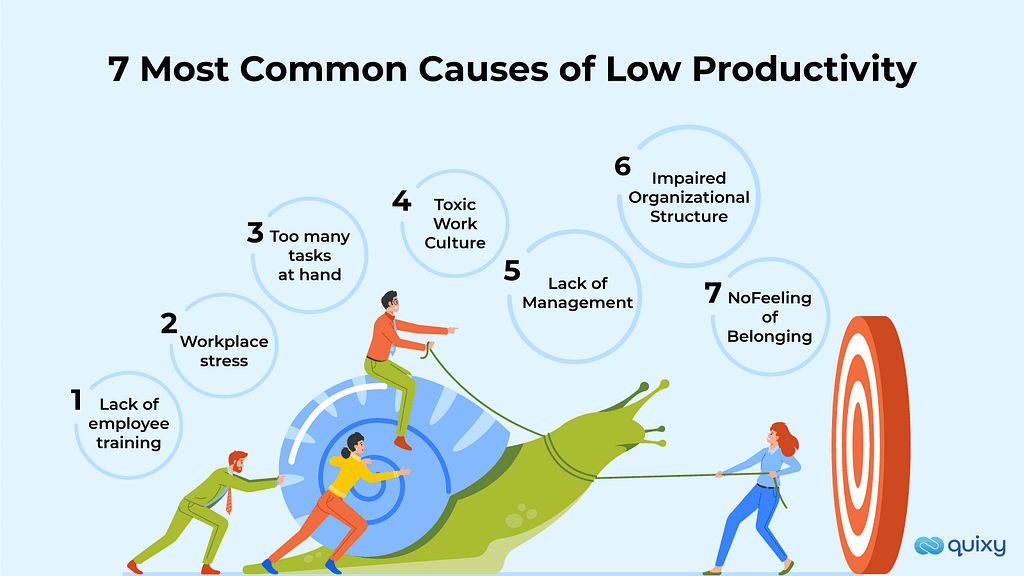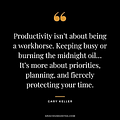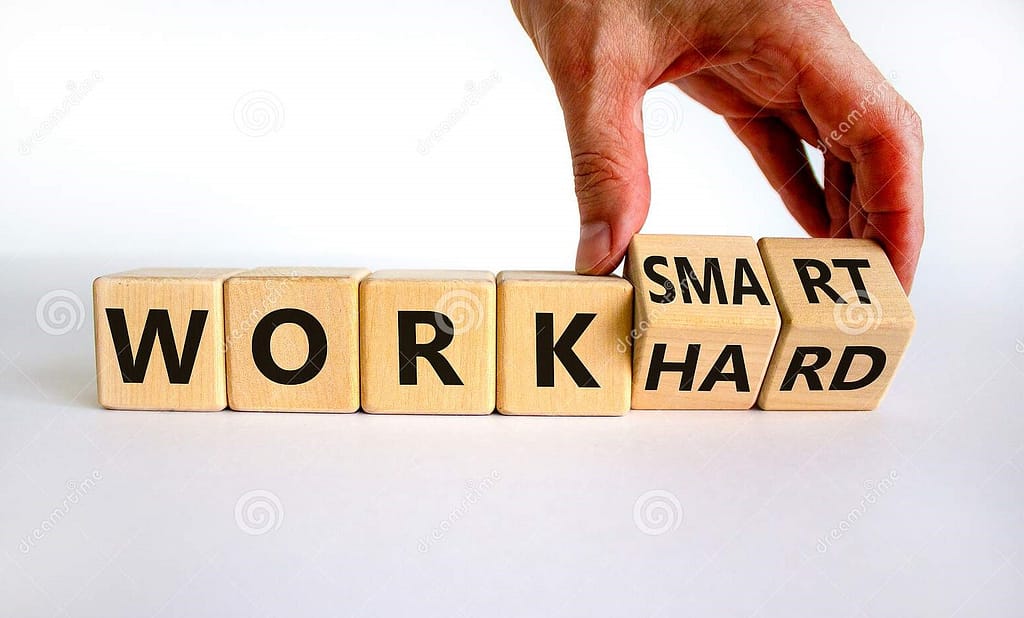Are you always confused about what to do first and what to do next?
Do you often find yourself jumping from task to task, making no real progress?
Do you find yourself demotivated and de-energized often?
Does it take more time for you to get things done?
Are you busy without being productive?
Are you stressed and overwhelmed with work often?
Do you find it difficult to say No?
Then I must tell you that you are reading the right post.
Most New Managers or Leaders are not aware of the mistakes they are making that will cost them in their careers in the long run by losing jobs, getting no or delayed promotions, and earning a bad reputation.
Needless to say, they will suffer from poor physical, mental and emotional health.
Despite putting in long hours of work and effort, they see poor results, make no real progress, and remain stressed, frustrated, and de-energized.
The purpose of this post is to enlighten you about the costly mistakes that will hamper your professional growth, affect your mental, physical, and emotional health and harm your relationships, in the sense that you may risk losing your job, or your promotion may be delayed, your mental health may deteriorate, or you may feel lack of motivation or get burnt out soon, have trouble making decisions, and have poor relationships with coworkers in your workplace.
Get these 23 Productivity Hacks to Work Smarter, Get more done and find Fulfilment and Balance Here !
.
So let’s explore the worst mistakes that are making you less productive.
1.LACK OF VISION.
Most New Managers lack vision, i.e. lack clarity on what they are doing and why they are doing it.
They are completely purposeless.
This is because they do not create a vision and intention for each day.
This makes each day a struggle and they end up wasting a lot of time, achieving nothing significant.
Knowing the significant impact of what you are doing and why you are doing it, gives you a reason to wake up each morning.
It allows you to press on during tough times or else you will have a hard time putting in sustained effort and making the best use of every hour.
2.NOT SETTING GOALS
According to research, only 35% of U.S. managers are engaged in their jobs. (Gallup State of the American Manager: Analytics and Advice for Leaders)
Managers who are not engaged or who are actively disengaged cost the U.S. economy $319 billion to $398 billion annually. (Gallup State of the American Manager: Analytics and Advice for Leaders)
On The other hand, Engaged employees are 21% more productive.
Most New managers do not know what they want to achieve.
They are directionless with no destination to reach.
It is because of their inability to set goals, makes things appear hazy and they keep jumping from one task to another, making no real progress.
They are always stressed and confused and achieve very little in time.
No wonder they become ineffective and burn out soon.
One important thing they do not understand about goals is that goals give them a clear direction in their life and help them make the best use of their energy.
Therefore as a leader, they are unable to guide and engage their team.
3.INABILITY TO PRIORITISE
Most New Managers have poor decision-making skills.
They do not set priorities, which makes it difficult to decide what to work on and at what time.
Their schedules are filled with trivia work, and handling crises, and are therefore unable to focus on the bigger and more important things.
As a result of this, they have tough days.
More problems pile up because they have trouble getting things done on time, and they keep stressing about how they will finish everything on their to-do list.
Because of this, they are unable to make the best use of their potential and feel unfulfilled.
Ranking your assignments in order of most to least important, and sorting out your priorities before you start working can make the day go a lot smoother.
4.PERFECTIONISM
‘At its root, Perfectionism isn’t about a deep love of being meticulous.
It’s about fear. Fear of making mistakes Fear of disappointing others, Fear of failure. Fear of success.’’
‘’Perfectionism is self-abuse of the highest order .’’
Anne Wilson Schafe
There is a class of New Managers who beat themselves up on the small stuff.
They easily get thrown off by minor mistakes and feel less inclined to finish tasks because they aren’t at their level of perfection.
Because of this habit, one thing takes longer to be completed, deadlines pile up, and projects get delayed.
Procrastination sets in which is harmful to all in the end.
Perfectionism lowers productivity, slows progress, causes more stress and vulnerability, and strains relationships with people around you.
It triggers anxiety and depression.
It also contributes to poor decision-making.
Perfectionists are poor decision-makers.
To avoid perfectionism, make do with what you have, and do only what is necessary.
Have your definition of the result, Set boundaries, and define a time limit.
5.LACK OF SELF DISCIPLINE
“With self-discipline almost anything is possible.”
Theodore Roosevelt.
In the age of information, New Managers stand the risk of getting distracted by surfing social media and answering phones or emails.
This lowers their productivity and ruins their chances of success.
It has been found that it takes 23 minutes to bring back your focus after one interruption.
Building self-discipline is like building muscles in the gym. It takes continual effort and time.
Self-discipline can be cultivated by putting in continuous effort and sticking to a schedule.
Minimizing distractions like emails, phone calls, and social media surfing during work hours is very effective in increasing your productivity.
A combination of discipline and the right environment will maximize your creative output.
6.WAITING TO BE MOTIVATED
Motivation is so overrated, that some people wait for motivation to show up.
The truth about motivation is that-
‘’ Motivation is what gets you started. Habit is what keeps you going .’’
Jim Ryun
It is well known that motivation is not the same every day and we cannot wait for it to show up every day.
Consistency and persistence are key to Productivity.
Therefore building healthy habits, having a routine, setting a pace to work each day, and most important of all not giving in to a bad mood are more effective than waiting to get motivated.
7.MICROMANAGING
Micromanagers are those people who insist too much on the day-to-day and do not have any long-term plans in place.
There’s no focus on the big picture.
They are more concerned about getting things just right every day.
As a result, everybody is busy with no focus on the bigger picture and long-term plans.
In this management style, a manager closely observes and/or controls and/or reminds the work of their subordinates or employees.
Many New Managers Micromanage which shows a lack of freedom and trust in their employees.
In research, Trinity Solutions found that almost 70% of employees consider changing jobs if they experience micromanaging behavior from their immediate boss.
It is a form of leadership that may produce results in the short term, but it hurts employee and company morale over time.
Here are some harmful effects of micromanagement :
Staff morale takes a hit.
Employees lose motivation.
They feel powerless because they have little autonomy
They develop self-doubt and feel stressed out.
No teamwork is encouraged.
It stifles the creativity of the employees.
Employees get burnt out.
Micromanagers are never satisfied.
Paying extreme attention creates mistrust between supervisors and employees, leading to frequent conflicts, anxiety, and poor relationships.
It harms the company in the long term. The company’s business can suffer even if a single employee is not working to their maximum potential.
As a result, Staff attrition increases.
On the bigger level, micromanagement affects things outside of work-Often, the stress that comes with being micromanaged at work spills into other parts of people’s lives.
This Toxicity has a ripple effect, and it doesn’t just stay confined to the workplace. It is only a matter of time before it starts to ruin other things as well.
Some things you can do to counter this are;
Trust every team member, give up control and give them autonomy, delegate appropriate tasks and responsibilities to them, prioritize key results, and monitor performance and not employees.
8.MULTITASKING
Some New Managers think that multitasking will help them accomplish more things in less time.
But this has been proven to be counterproductive.
Not only is the quality of work poor, but switching between various tasks causes decision fatigue and increased stress,leading to serious mental health challenges.
Here are a few shocking statistics on Multitasking :
Multitasking leads to as much as a 40% drop in productivity. (Bergman, P. (2010, May 20). How (and why) to stop multitasking. Harvard Business
Multitasking causes a 10% drop in IQ. (Bergman, P. 2010, May 20. How (and why) to stop multitasking. Harvard Business Review.)
It takes more time to get things done when you try to multitask. People who are interrupted – and therefore have to switch their attention back and forth – take 50% longer to accomplish a task. (John Medina, Brain Rules)
Multitaskers make up to 50% more errors. (John Medina, Brain Rules)
Batching your tasks, prioritizing them by making a to-do list, and delegating are more effective than multitasking.
9.PROCRASTINATION
“The sooner I fall behind, the more time I have to catch up.”
— Source unknown
Most Managers keep putting things off, without realizing that some things will bounce back as bigger issues if they are put off.
The habit of procrastinating gets better on them as a result of which progress becomes slower.
Here are some harmful effects of procrastination :
Loss of precious time -they do not realize that they are losing precious time. For procrastinators, things remain the same even after 5, or 10 years.
Loss of opportunities-A particular opportunity could change your life. Those who procrastinate, miss out on precious opportunities.
Block for realizing goals-Procrastination is a roadblock that prevents you from reaching your goals.
Ruined career -people who procrastinate often fail deadlines or fail to achieve their goals. They decrease the efficiency of the organization and increase the chance to lose their job.
Decreases self-esteem-Procrastination lowers confidence and people start to doubt and have questions about what is wrong with them. Their self-esteem and self-worth become Low.
Low self-esteem can destroy lives and careers in many ways.
Poor decisions- Procrastinators are poor decision-makers and their decisions are always weak.
Being Proactive helps you to progress faster and keep problems at bay.
10.INABILITY TO SAY NO
A 2017 article in Forbes quoted research that found people who have trouble saying “no” were more anxious and felt less in control of their lives.
These people were less clear on their priorities in life and had lower self-esteem.
‘’It is only by saying NO, that you can concentrate on things that are important .’’
Steve Jobs
Quite many New Managers are unable to Say No because they want to appear helpful or they do not want to displease others.
And they end up taking up more responsibilities than they can take care of. This makes them slow and inefficient.
Agreeing to do everything has a negative side to it.
A constant agreement can lead to dangerous situations, dealing with shady characters, and burnout.
Since time is limited for everyone, you simply cannot agree to everything in life because doing so leads to people taking advantage of you.
How Saying YES can Become a NO to Yourself :
Saying yes to everything has some negative impact on the organization, on its ability to execute top business goals, and on your leadership.
1.Decline in Revenue
This article shows that there is a direct correlation between the organization’s priority list and revenue growth.
A short and focused priority list with 1 to 3 key items leads to greater revenue, while a longer one contributes to a decline in revenue growth.
2 Lack of focus in the Organization
Having too many priorities spread you thin. Organizations, where there are too many priorities to handle, have their leader’s focus and attention scattered.
Nothing gets done well because they have too many things to focus on. More often they get the wrong things done with no progress on key strategic initiatives.
3 Poor Leadership
When you have an overflowing plate of responsibilities, it is challenging to lead the organization successfully.
You end up getting busy with meetings and workload overwhelm. The progress of people who depend on your decisions is delayed, because you are too exhausted and have no time for them.
You feel fuzzy and out of control. You are unable to think straight.
People lose faith in you and it takes a toll on your confidence.
You have already gone into a downward spiral and it is too late and tough to change the track.
‘’ Do not forget, you can be a good person with a kind heart and still say NO’’
Don’t be afraid to say no so you have time to focus on your priorities.
CONCLUSION
As I said at the beginning of the post I will be sharing with you the Productivity mistakes most New Managers make that prevent them from using their potential fully well, keeps them stressed, affects their mental, emotional, and physical health, contributes to poor work-life balance, robs their creativity and focus, and leads to poor relationships with co-workers and more often costs them their jobs, I am sure you feel enlightened enough after reading the post.
If you want to know how Productive you are ,then take this Assessment to get more accurate information about your Productivity .
Now what mistake do you find yourself making? What do you want to change?
If you need help with any of the things above, please leave your comments below.
Babita Sharma
Leadership Coach
P.S – Please share the post and help someone today .
P.P.S –
Now is the time to unleash your full potential and be more productive than ever before .
If you desire to master your productivity -by working smarter, being effective with your time and efforts, and having a healthy work-life balance
Or
If you want to be intentional and mindful with how you spend your time and are typically ambitious and goal-oriented.
Or
If you want to improve your performance, feel less stressed and have a healthier work-life balance , schedule a FREE DISCOVERY SESSION HERE !








